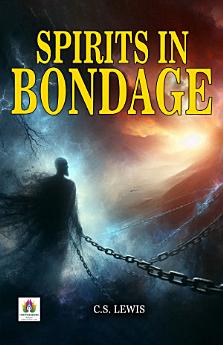Spirits in Bondage
Über dieses E-Book
The collection opens with the voice of a man in the midst of a personal spiritual battle, grappling with the weight of his own doubts and fears. Lewis writes with raw emotion and vulnerability, exposing his internal conflict between the allure of atheism and the aching pull of faith. Spirits in Bondage is a haunting portrayal of the struggle between the intellectual mind and the spiritual heart, a journey toward redemption through understanding and belief. Lewis’s poems are filled with a profound sense of alienation and a longing for solace, but they also reveal an enduring hope that ultimately emerges from the darkness.
The title, Spirits in Bondage, evokes the sense of being trapped—enslaved by one’s own thoughts, doubts, and fears. This sense of internal imprisonment is a recurring motif throughout the collection, as Lewis reflects on the limitations of the human spirit in its search for meaning. The bondage described in the poetry is not only a metaphor for the constraints of intellectual reasoning but also for the emotional and spiritual struggles that prevent the soul from experiencing true freedom. These poems are a cry from the heart, reaching out for a deeper understanding of life’s purpose and the possibility of spiritual redemption.
As an early work, Spirits in Bondage provides a glimpse into the formative years of C.S. Lewis as a writer and thinker. His later works, such as The Chronicles of Narnia and Mere Christianity, would build upon the spiritual and intellectual questions he began exploring in this collection. However, even in these early poems, one can detect the profound sensitivity and insight that would become the hallmark of his writing. The themes of suffering, redemption, and spiritual freedom would continue to shape his literary career, making this work an essential part of his literary legacy.
Spirits in Bondage is not only a collection of poems; it is a testament to the personal and intellectual evolution of one of the greatest thinkers and writers of the 20th century. The poems reflect Lewis’s internal struggles, but they also offer hope to those who find themselves trapped in their own spiritual or existential doubts. The collection is a call to readers to examine their own lives, to confront their own doubts, and to seek spiritual freedom through understanding and faith.
For readers interested in the spiritual and intellectual development of C.S. Lewis, Spirits in Bondage is an invaluable work. It provides a unique insight into the mind of a man who would later go on to become a towering figure in Christian literature and philosophy. The collection is not only a reflection on Lewis’s own personal journey but also an invitation to readers to embark on their own quest for meaning, redemption, and spiritual liberation.







